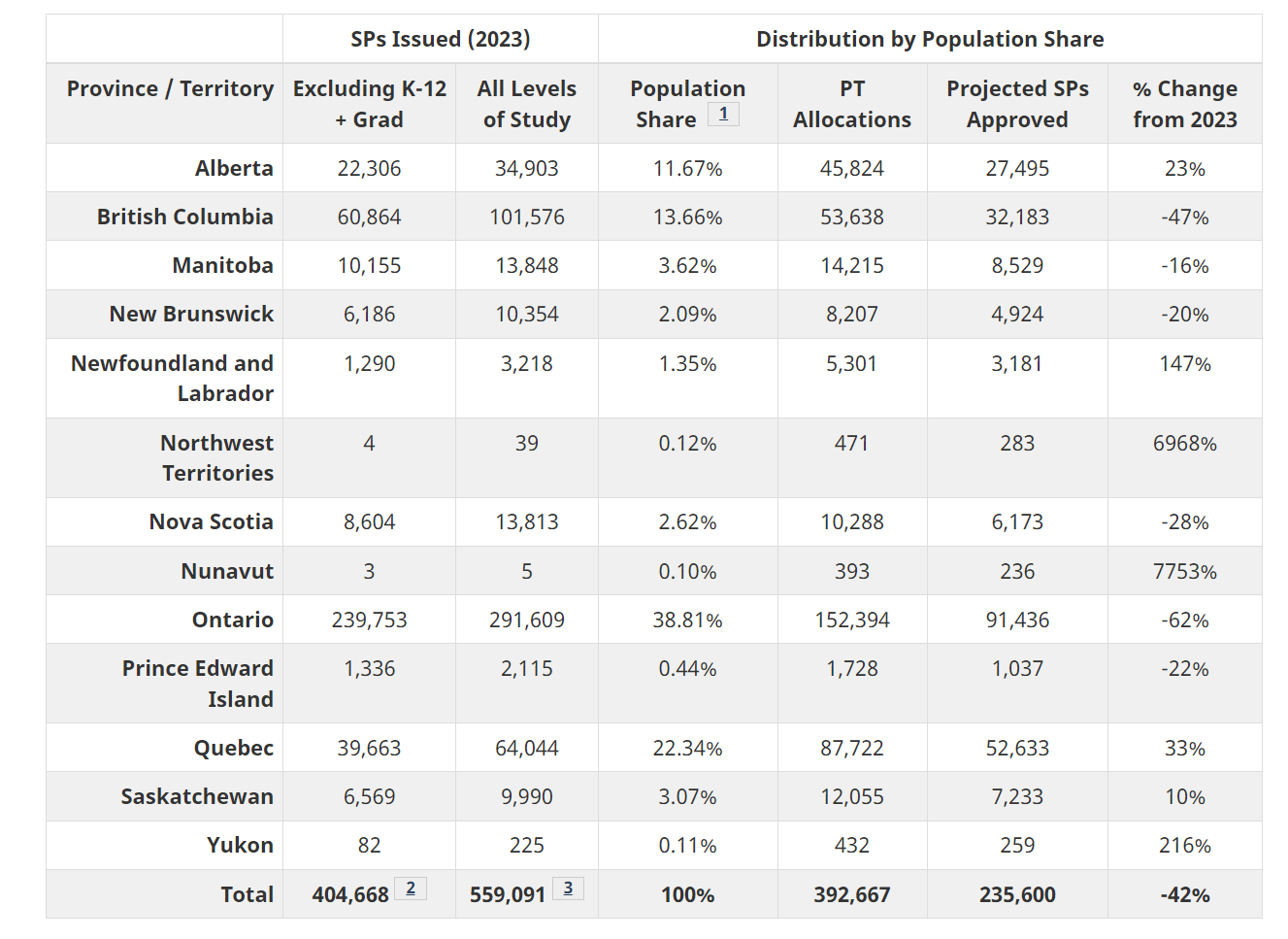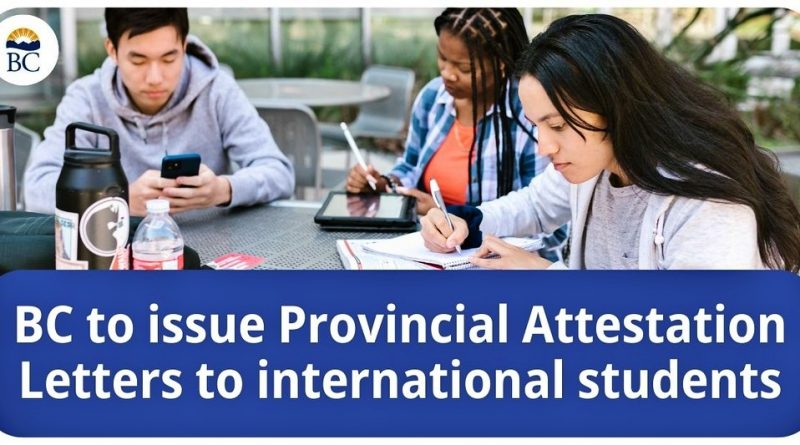B.C. Introduces Measures to Align with New International Student Regulations
The Province will begin issuing provincial attestation letters to eligible post-secondary institutions to allow international applicants to apply to study in B.C. as required by the federal department of Immigration, Refugees and Citizenship Canada (IRCC).
The new provincial attestation letter system will be effective as of March 4, 2024. Provincial attestation letters are now required for new study permit applications. The IRCC announced the new requirements on Jan. 22, 2024.
“Our ministry is moving quickly to ensure that we mitigate negative impacts to our post-secondary institutions and that international students have every opportunity to succeed in their education in B.C.,” said Lisa Beare, Minister of Post-Secondary Education and Future Skills. “While we’ve all agreed that the status quo wasn’t working for anyone – not for students, and not for our communities – the federal cap doesn’t take British Columbia’s unique environment into account. We will continue to work with the federal government to ensure any subsequent changes take British Columbia’s needs into consideration so that we can have a made-in-B.C. solution that properly responds to our shared goals.”
The provincial attestation letter is a verification letter that will be sent from the Province to the institution, then from the institution to the international applicant. The letter will serve as proof that the applicant has been accounted for within the maximum set by the federal government. Applicants will submit the attestation letter along with their study permit application. Institutions that use their full allocation will not be able to submit more applications until a new allocation is issued by the federal government for the following year.
B.C.’s allocation allows for 83,000 undergraduate study permit applications. This compares to approximately 97,000 study permit applications in 2023 for undergraduate programs. Based on previous acceptance rates, the federal government expects this to result in approximately 50,000 approved study permit applications for 2024. This compares to approximately 60,000 approved study permits for B.C. in 2023.

The distribution for the provincial attestation letters will be 53% for public post-secondary institutions and 47% for private institutions. The distribution is based on supporting public post-secondary institutions to maintain their international student programs while managing growth for this year and for future years. These numbers are based on the federal allotment of attestation letters, they do not represent approved study permits.
“Our government is acting promptly to ensure that there is as little disruption as possible given the new federal requirements and cap on international visa applications,” said Ravi Parmar, Parliamentary Secretary for International Credentials. “We will continue to implement the suite of actions our government recently announced to enhance post-secondary education quality and maintain and strengthen B.C.’s reputation while delivering the quality that British Columbians expect and international students deserve.”
The allocations will allow those public post-secondary institutions with sustainable international enrolment to maintain their international student programs. Private institutions that have pursued unsustainable growth will see the greatest impact of the reduced allocation. In 2024, private institutions will receive 27% fewer study permit applications than they did in 2023.
Most new study permit applications by undergraduate post-secondary international students and graduate students in non-degree programs will require a provincial attestation letter. Institutions will request the letter from the Province for their applicants to submit to the federal government with their study permit application.
Some applicants are exempt from the requirement, including:
- primary and secondary school students;
- master’s or doctoral degree students;
- students already in Canada with a valid study permit or in-Canada work permit holders and their in-Canada family members;
- students already in Canada applying for an extension; and
- students whose application was received before 8:30 a.m. (Eastern time) on Jan. 22, 2024.
The Province will continue to support international students to ensure they receive high-quality education in B.C. Over the coming year, more action will be taken to better align programs with B.C.’s labour-market needs and continue to strengthen protections for students to prevent exploitation.
Backgrounders
Province’s actions to eliminate international student exploitation
In early 2024, following consultation with international students and post-secondary partners in spring 2023, the Province introduced a suite of actions to eliminate exploitive practices, improve the quality of post-secondary education, and bring in new safeguards to support international students, including:
- pausing approvals for new post-secondary institutions seeking to enrol international students until February 2026;
- implementing more frequent inspections of private post-secondary institutions to ensure that new and improved quality standards are met;
- ensuring private degree programs meet higher standards for approval, including higher assessment criteria for degree quality, demonstrated labour-market need for graduates, and appropriate resources and student supports;
- creating new minimum language requirements for private institutions to ensure new international students are better prepared for their educational and professional journey in B.C.; and
- requiring post-secondary institutions to post tuition levels for students for the entire time they are studying ensuring incoming students know the entire costs of education before they start a program.





